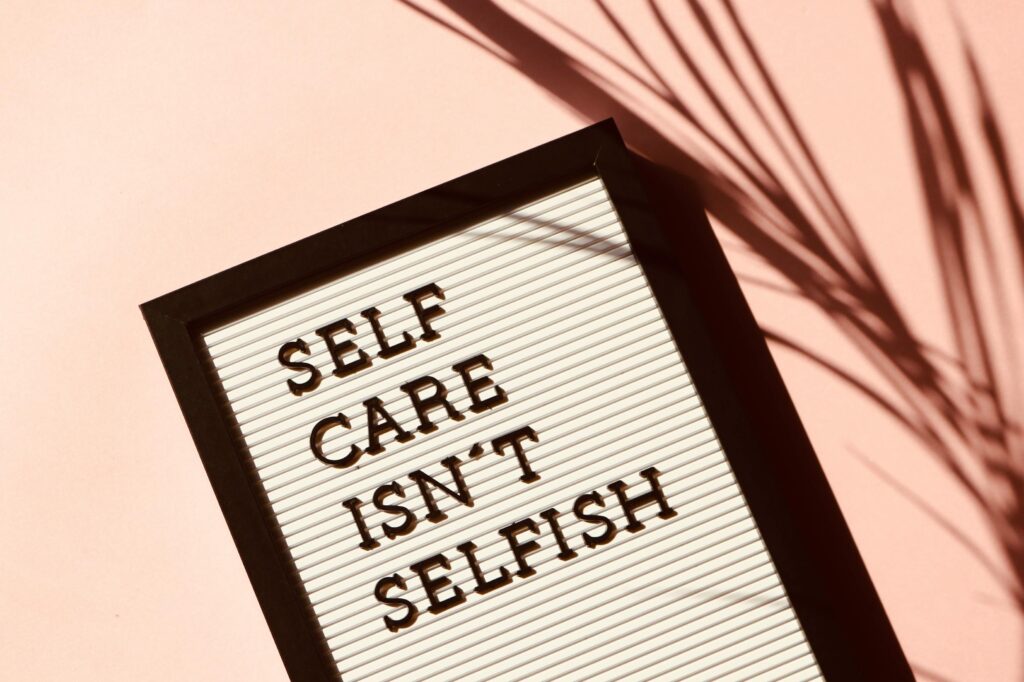OCD
Understanding Obsessive-Compulsive Disorder (OCD)
Obsessive-Compulsive Disorder (OCD) is a chronic mental health condition characterized by unwanted, intrusive thoughts (obsessions) and repetitive behaviors or mental acts (compulsions) that an individual feels driven to perform. These symptoms can significantly interfere with daily life, work, relationships, and overall well-being.
What Are Obsessions?
Obsessions are persistent, unwanted thoughts, urges, or images that cause significant anxiety or distress. Common obsessions include:
Fear of contamination (e.g., germs, dirt, illness)
Intrusive thoughts of harming oneself or others
Unwanted taboo thoughts involving sex, religion, or harm
A strong need for symmetry, order, or exactness
People with OCD often recognize that these thoughts are irrational, but feel powerless to stop them.
What Are Compulsions?
Compulsions are repetitive behaviors or mental rituals performed in response to obsessions. These actions are intended to reduce distress or prevent a feared event, but they are not realistically connected to the outcome they’re meant to prevent.
Common compulsions include:
Excessive handwashing or cleaning
Repeatedly checking things (like locks or appliances)
Counting, tapping, or repeating phrases
Arranging objects until they feel “just right”
Compulsions often provide only temporary relief, and the cycle soon repeats.
Causes and Risk Factors
While the exact cause of OCD is unknown, a combination of biological, genetic, and environmental factors are believed to contribute. Risk factors may include:
Family history of OCD or other anxiety disorders
Abnormalities in brain structure or function
Stressful life events or trauma
Personality traits such as perfectionism or high anxiety
Diagnosis and Treatment
OCD is typically diagnosed by a mental health professional based on clinical interviews and assessment tools. It is important to differentiate OCD from other conditions with similar symptoms, such as generalized anxiety disorder or perfectionistic traits.
Effective treatments for OCD include:
Cognitive Behavioral Therapy (CBT) – especially a type called Exposure and Response Prevention (ERP), which helps individuals face their fears and reduce compulsive behaviors.
Medication – such as selective serotonin reuptake inhibitors (SSRIs) to help manage symptoms.
Support groups and self-help strategies – can provide encouragement, insight, and community.
Early diagnosis and treatment can significantly improve quality of life for people with OCD.
Living with OCD
OCD is a manageable condition, but it requires consistent support and treatment. Many people with OCD lead successful, fulfilling lives when they receive the right care. Compassion, education, and reducing stigma are key to helping those affected.
Addiction

Our blog features a wealth of high-quality, free content that covers a wide range of topics related to mental health. From mindfulness and self-care practices to stress management techniques and emotional well-being, our articles provide you with practical advice, inspiring insights, and actionable steps to enhance your overall quality of life.
Addiction

Our blog features a wealth of high-quality, free content that covers a wide range of topics related to mental health. From mindfulness and self-care practices to stress management techniques and emotional well-being, our articles provide you with practical advice, inspiring insights, and actionable steps to enhance your overall quality of life.
Addiction

Our blog features a wealth of high-quality, free content that covers a wide range of topics related to mental health. From mindfulness and self-care practices to stress management techniques and emotional well-being, our articles provide you with practical advice, inspiring insights, and actionable steps to enhance your overall quality of life.
Addiction

Our blog features a wealth of high-quality, free content that covers a wide range of topics related to mental health. From mindfulness and self-care practices to stress management techniques and emotional well-being, our articles provide you with practical advice, inspiring insights, and actionable steps to enhance your overall quality of life.
Addiction

Our blog features a wealth of high-quality, free content that covers a wide range of topics related to mental health. From mindfulness and self-care practices to stress management techniques and emotional well-being, our articles provide you with practical advice, inspiring insights, and actionable steps to enhance your overall quality of life.
Addiction

Our blog features a wealth of high-quality, free content that covers a wide range of topics related to mental health. From mindfulness and self-care practices to stress management techniques and emotional well-being, our articles provide you with practical advice, inspiring insights, and actionable steps to enhance your overall quality of life.
Addiction

Our blog features a wealth of high-quality, free content that covers a wide range of topics related to mental health. From mindfulness and self-care practices to stress management techniques and emotional well-being, our articles provide you with practical advice, inspiring insights, and actionable steps to enhance your overall quality of life.
Addiction

Our blog features a wealth of high-quality, free content that covers a wide range of topics related to mental health. From mindfulness and self-care practices to stress management techniques and emotional well-being, our articles provide you with practical advice, inspiring insights, and actionable steps to enhance your overall quality of life.
Addiction

Our blog features a wealth of high-quality, free content that covers a wide range of topics related to mental health. From mindfulness and self-care practices to stress management techniques and emotional well-being, our articles provide you with practical advice, inspiring insights, and actionable steps to enhance your overall quality of life.
Addiction

Our blog features a wealth of high-quality, free content that covers a wide range of topics related to mental health. From mindfulness and self-care practices to stress management techniques and emotional well-being, our articles provide you with practical advice, inspiring insights, and actionable steps to enhance your overall quality of life.
Addiction

Our blog features a wealth of high-quality, free content that covers a wide range of topics related to mental health. From mindfulness and self-care practices to stress management techniques and emotional well-being, our articles provide you with practical advice, inspiring insights, and actionable steps to enhance your overall quality of life.
Addiction

Our blog features a wealth of high-quality, free content that covers a wide range of topics related to mental health. From mindfulness and self-care practices to stress management techniques and emotional well-being, our articles provide you with practical advice, inspiring insights, and actionable steps to enhance your overall quality of life.
Addiction

Our blog features a wealth of high-quality, free content that covers a wide range of topics related to mental health. From mindfulness and self-care practices to stress management techniques and emotional well-being, our articles provide you with practical advice, inspiring insights, and actionable steps to enhance your overall quality of life.
Addiction

Our blog features a wealth of high-quality, free content that covers a wide range of topics related to mental health. From mindfulness and self-care practices to stress management techniques and emotional well-being, our articles provide you with practical advice, inspiring insights, and actionable steps to enhance your overall quality of life.
Addiction

Our blog features a wealth of high-quality, free content that covers a wide range of topics related to mental health. From mindfulness and self-care practices to stress management techniques and emotional well-being, our articles provide you with practical advice, inspiring insights, and actionable steps to enhance your overall quality of life.
Addiction

Our blog features a wealth of high-quality, free content that covers a wide range of topics related to mental health. From mindfulness and self-care practices to stress management techniques and emotional well-being, our articles provide you with practical advice, inspiring insights, and actionable steps to enhance your overall quality of life.
Addiction

Our blog features a wealth of high-quality, free content that covers a wide range of topics related to mental health. From mindfulness and self-care practices to stress management techniques and emotional well-being, our articles provide you with practical advice, inspiring insights, and actionable steps to enhance your overall quality of life.
Addiction

Our blog features a wealth of high-quality, free content that covers a wide range of topics related to mental health. From mindfulness and self-care practices to stress management techniques and emotional well-being, our articles provide you with practical advice, inspiring insights, and actionable steps to enhance your overall quality of life.
Addiction

Our blog features a wealth of high-quality, free content that covers a wide range of topics related to mental health. From mindfulness and self-care practices to stress management techniques and emotional well-being, our articles provide you with practical advice, inspiring insights, and actionable steps to enhance your overall quality of life.
Addiction

Our blog features a wealth of high-quality, free content that covers a wide range of topics related to mental health. From mindfulness and self-care practices to stress management techniques and emotional well-being, our articles provide you with practical advice, inspiring insights, and actionable steps to enhance your overall quality of life.Spa Mobile
Soccer
Understanding OCD
What is OCD?
FREQUENTLY ASKED QUESTIONS
OCD (Obsessive-Compulsive Disorder) is a mental health condition where a person experiences recurring, unwanted thoughts (obsessions) and feels compelled to perform repetitive behaviors (compulsions) to reduce anxiety caused by those thoughts.
While symptoms may lessen at times, OCD typically does not go away without treatment. Professional support through therapy or medication can significantly reduce symptoms and help individuals manage the condition more effectively.
No, OCD is much more than liking things clean or orderly. It involves distressing, intrusive thoughts and compulsive behaviors that can disrupt daily life. Not everyone with OCD is focused on cleanliness.
There isn’t a single known cause. OCD is believed to result from a combination of genetic, neurological, behavioral, and environmental factors. Stress or trauma may also trigger or worsen symptoms.
The most effective treatments are Cognitive Behavioral Therapy (CBT), particularly Exposure and Response Prevention (ERP), and medication such as SSRIs (Selective Serotonin Reuptake Inhibitors). A combination of both often leads to the best outcomes.
KEY TERMS
A complex condition characterized by compulsive drug use or behavior despite harmful consequences.
Substance Use Disorder (SUD) A clinical term used to describe addiction to drugs or alcohol.
Physical or psychological reliance on a substance, often leading to withdrawal symptoms when use is reduced or stopped.
Support groups, such as Alcoholics Anonymous (AA) and Narcotics Anonymous (NA), that follow a structured, 12-step approach to recovery.
The process of overcoming addiction and maintaining a substance-free lifestyle.
The process of removing toxins from the body, often used to describe the initial stages of treatment for addiction.
The return to substance use or addictive behavior after a period of abstinence.
Physical and psychological symptoms that occur when a person stops using a substance they are dependent on.
EXPLORE ADDICTION








